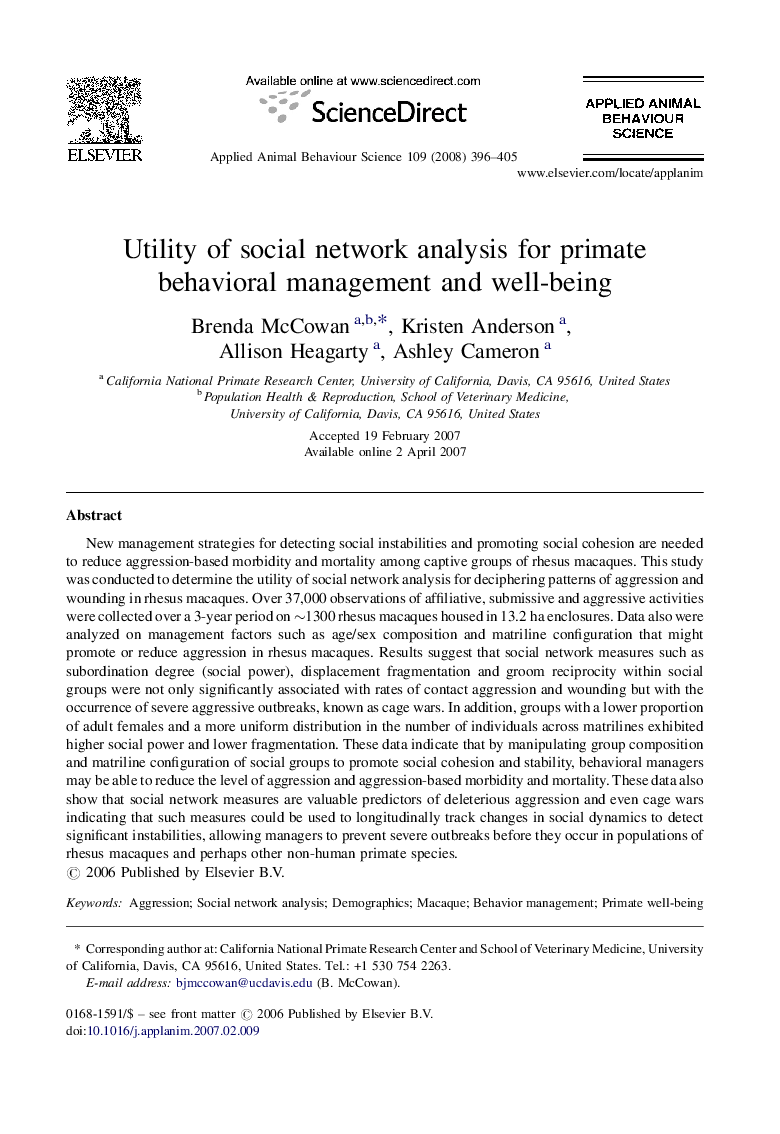| Article ID | Journal | Published Year | Pages | File Type |
|---|---|---|---|---|
| 6379782 | Applied Animal Behaviour Science | 2008 | 10 Pages |
Abstract
New management strategies for detecting social instabilities and promoting social cohesion are needed to reduce aggression-based morbidity and mortality among captive groups of rhesus macaques. This study was conducted to determine the utility of social network analysis for deciphering patterns of aggression and wounding in rhesus macaques. Over 37,000 observations of affiliative, submissive and aggressive activities were collected over a 3-year period on â¼1300 rhesus macaques housed in 13.2Â ha enclosures. Data also were analyzed on management factors such as age/sex composition and matriline configuration that might promote or reduce aggression in rhesus macaques. Results suggest that social network measures such as subordination degree (social power), displacement fragmentation and groom reciprocity within social groups were not only significantly associated with rates of contact aggression and wounding but with the occurrence of severe aggressive outbreaks, known as cage wars. In addition, groups with a lower proportion of adult females and a more uniform distribution in the number of individuals across matrilines exhibited higher social power and lower fragmentation. These data indicate that by manipulating group composition and matriline configuration of social groups to promote social cohesion and stability, behavioral managers may be able to reduce the level of aggression and aggression-based morbidity and mortality. These data also show that social network measures are valuable predictors of deleterious aggression and even cage wars indicating that such measures could be used to longitudinally track changes in social dynamics to detect significant instabilities, allowing managers to prevent severe outbreaks before they occur in populations of rhesus macaques and perhaps other non-human primate species.
Related Topics
Life Sciences
Agricultural and Biological Sciences
Animal Science and Zoology
Authors
Brenda McCowan, Kristen Anderson, Allison Heagarty, Ashley Cameron,
